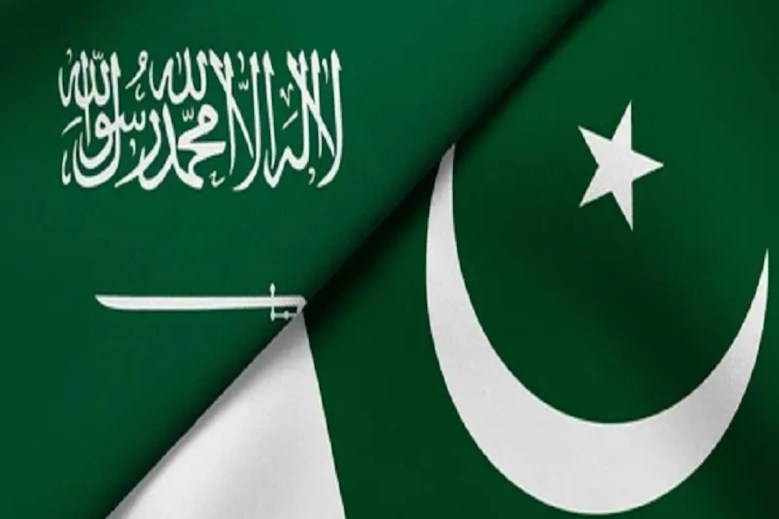Politics
Saudi Arabia and Pakistan Sign Defense Pact Amid Regional Tensions

Saudi Arabia and Pakistan have formalized a Strategic Mutual Defense Agreement (SMDA) aimed at enhancing defense cooperation between the two nations. Announced in a joint statement, the pact emphasizes a commitment to mutual defense, declaring that “any aggression against either country shall be considered an aggression against both.” Despite its strong wording, the agreement lacks specific obligations for military intervention, a characteristic reminiscent of NATO’s Article 5, which leaves room for interpretation.
The agreement comes as both countries navigate a complex geopolitical landscape. Observers suggest that Saudi Arabia, a key ally of the United States, may have reacted to perceived American inaction regarding Israel’s military operations against Hamas targets in Qatar. The strategic partnership with Pakistan, which possesses nuclear capabilities, could serve as a deterrent against Israel, particularly as Saudi Arabia seeks to bolster its defense posture.
Saudi Arabia has historically supported Pakistan financially, especially during economic hardships. This relationship may take on new significance as both nations explore potential mutual benefits within the framework of the SMDA. Reports indicate that Saudi Arabia could support Pakistan in potential conflicts with India, possibly leveraging oil shipments as a means of exerting influence during hostilities.
While the motivations behind the SMDA appear compelling, many analysts caution against overestimating its immediate implications. Pakistan has not credibly threatened Israel in the past, despite strong rhetoric regarding its stance on Palestine. Additionally, during conflicts with India—its main rival—Pakistan has refrained from using nuclear weapons, raising questions about its willingness to escalate matters against Israel.
Israel and Saudi Arabia, despite their disagreements over Palestine, have maintained a degree of closeness, further complicating the narrative surrounding the SMDA. Saudi Arabia does not host any groups designated as terrorist organizations by Israel, differentiating it from Qatar’s situation. Furthermore, Saudi Arabia’s relationship with India has strengthened over the years, with India emerging as a significant importer of Saudi oil. Both nations, along with Israel, are involved in the India-Middle East-Europe Economic Corridor (IMEC), a project announced during the G20 summit in September 2023.
The real significance of the SMDA may lie in its symbolic value rather than in any tangible military alliance. Analysts argue that it could serve as a face-saving mechanism for Saudi Arabia in light of recent events, reinforcing the importance of military collaboration within the Muslim world. The likelihood of Pakistan militarily supporting Saudi Arabia in its disputes remains uncertain. Historical precedents indicate that Pakistan declined Saudi Arabia’s request for military assistance during the Yemen conflict in 2015, suggesting that similar requests may be met with reluctance in the future.
The scenarios in which both nations could find themselves compelled to support each other militarily are complex and fraught with challenges. Should the Houthi rebels escalate their military operations against Saudi Arabia, the request for Pakistani assistance might arise. However, any engagement would likely depend on the nature of the conflict and the involvement of external powers, particularly the United States.
While the SMDA has generated considerable discussion and speculation, many analysts urge caution in interpreting its potential impact. Political and ideological motivations may drive certain commentators to highlight the agreement as a significant development, despite evidence suggesting it may not be a transformative alliance.
In summary, the Strategic Mutual Defense Agreement between Saudi Arabia and Pakistan underscores a strategic partnership amid regional tensions. Yet, its effectiveness and real-world implications remain to be seen, as the complexities of international relations and historical precedents shape the dynamics of this partnership.
-

 World5 months ago
World5 months agoSouth Korea’s Foreign Minister Cho Hyun to Visit China This Week
-

 Business5 months ago
Business5 months agoStarling Bank Plans Secondary Share Sale, Targeting $5.4 Billion Valuation
-

 Top Stories5 months ago
Top Stories5 months agoMunsang College Celebrates 100 Years with Grand Ceremony
-

 World5 months ago
World5 months agoPAS Aims to Expand Parliamentary Influence in Upcoming Election
-

 Business7 months ago
Business7 months agoKenvue Dismisses CEO Thibaut Mongon as Strategic Review Advances
-

 Lifestyle6 months ago
Lifestyle6 months agoHumanism Camp Engages 250 Youths in Summer Fest 2025
-

 Sports6 months ago
Sports6 months agoDe Minaur Triumphs at Washington Open After Thrilling Comeback
-

 Sports7 months ago
Sports7 months agoTupou and Daugunu Join First Nations Squad for Lions Clash
-

 Top Stories7 months ago
Top Stories7 months agoColombian Senator Miguel Uribe Shows Signs of Recovery After Attack
-

 World7 months ago
World7 months agoASEAN Gears Up for Historic Joint Meeting of Foreign and Economic Ministers
-

 Health6 months ago
Health6 months agoNew Study Challenges Assumptions About Aging and Inflammation
-

 Business7 months ago
Business7 months agoOil Prices Surge Following New EU Sanctions on Russia









